Formal and Informal Language Formal vs. Informal Words • 7ESL
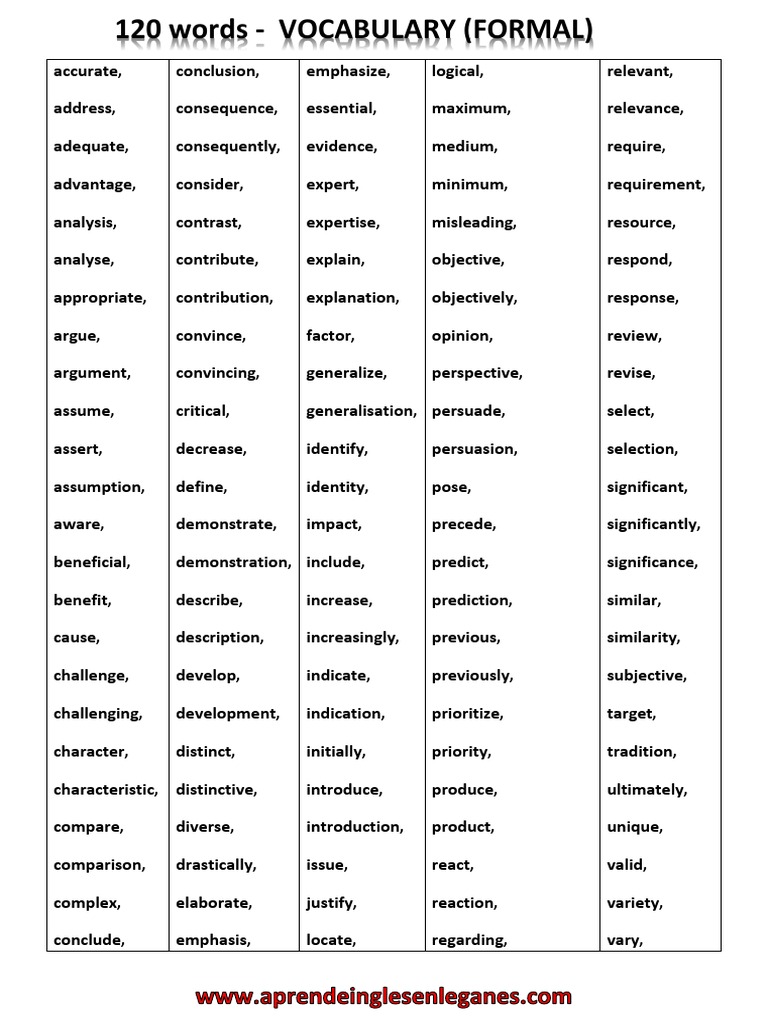
120 Formal English Words (List) Argument Communication
The words we use are like the clothes we wear, they make an impression on the person who reads them. The more formal and intellectual words and phrases that you use in your pieces of writing (for example, using 'therefore' instead of 'so'), the more professional and intelligent you sound.
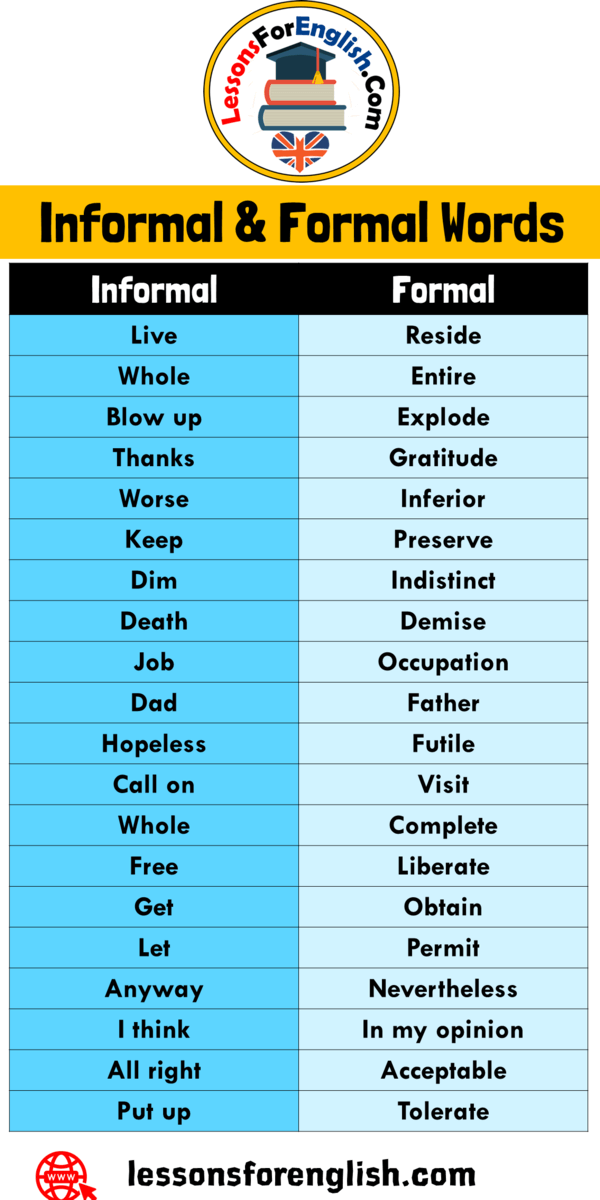
160 Informal and Formal Words List in English Lessons For English
vocabulary Teachers Adam Alex Benjamin Emma Gill Jade James Rebecca Ronnie Resources Formal & Informal English by Emma Formal English: We use it when writing essays for school, cover letters to apply for jobs, or emails and letters at work. Informal English: We use it with friends, children, and relatives.

Formal and Informal Language Formal vs. Informal Words • 7ESL
Good Vocabulary Words To Use For a Research Paper All of the above reasons can be brought to one conclusion: if you use simple words, they will ruin even the best research.
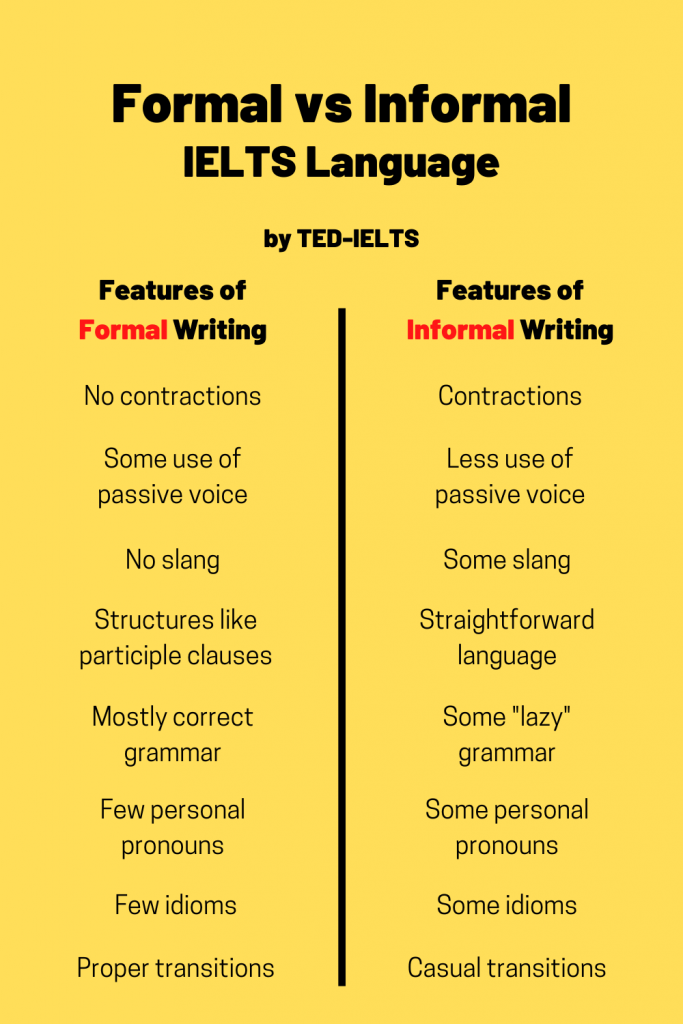
Formal and Informal Vocabulary for IELTS TED IELTS
51 Formal Academic Writing Words to Use While it is necessary to make sense of your writing, it is also advised to identify what sounds best for your assignment and be able to communicate arguments, ideas, and opinions with your target audience, cohesively and concisely. Would You Like to Know more about our Service?

Formal and Informal English Words and Phrases ESLBUZZ
Use the Paraphrase Report to rewrite your work with better wording. When you run this report, you'll see formal alternatives to your original text. Formal vs. Informal Language: What's the Difference? Words have denotations, or dictionary definitions, and connotations, which are the ideas and feelings a word evokes.

Helpful Tips and Rules for Formal Writing in English ESLBUZZ
english, vocabulary Formal English: Formal Language is like a formal dress, in a formal language you have to be careful with words, you have to choose words with respect. We use it when writing essays for school, cover letters to apply for jobs, or emails and letters at work. Informal English:

Formal and Informal Language Formal vs. Informal Words • 7ESL Informal words, English words
Academic Style 3: Vocabulary (AWL & Nominalisation) [new 2021] This lesson focuses on two key areas of academic writing: AWL and nominalisation. There are three worksheets comprising of a number of different activities to practice categorisation and reformulation at sentence and paragraph level. ( Example) Time: 60mins.

Which of the Following Is an Informal Research Method MarelyhasFlynn
formal, adj. stiffly polite rather than relaxed and friendly; said of language: strictly correct with regard to grammar, style and choice of words, as distinct from conversational informal, adj. without ceremony or formality; relaxed and friendly; said of language, clothes, etc: suitable for and used in relaxed, everyday situations.

The Difference Between Formal and Informal Language Academic language, Academic writing
We use contractions in speech all the time, but try to avoid them in formal essays. Your instructor might be okay with a few here and there, but spelling out won't, aren't, don't, can't, etc. can help lift your language out of the conversational level. This content is adapted from Using a Formal Writing Style, The Writing Studio.

Writing Formal x Informal language 2 English Reading, English Writing, Academic Writing
Formal is the act of adhering to social rules, conventions, and etiquette. To convey information, it is important to write in a concise manner. Which is why in writing, becoming a formal writer is an advantage. Letters are the most common forms of writing in formal style, but it can also include news reports, emails, essays, or non-fiction.
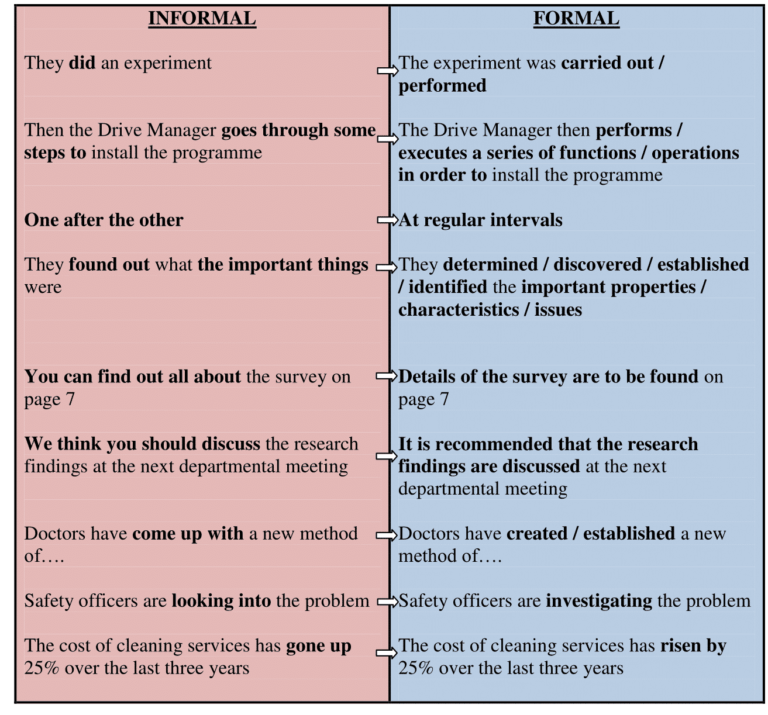
The Difference Between Formal and Informal Writing
But there are also more notable differences between formal and informal language. We'll give some examples below. 1. Contractions. It is advised to avoid contractions (shortened versions of words) in formal language, but they're acceptable in informal language. Unfortunately, the team could not replicate the results.

Formal and Informal Language Formal vs. Informal Words • 7ESL
Formal. In business writing, the appropriate style will have a degree of formality. Formal language is communication that focuses on professional expression with attention to roles, protocol, and appearance. It is characterized by its vocabulary and syntax, or the grammatical arrangement of words in a sentence.

Formal and Informal Language Formal vs. Informal Words • 7ESL
Formal writing reflects on the writer, as each word and sentence should be presenting information in a clear way. An expertly-written formal piece is relevant and easy to understand, and it should provoke further conversation that will get you closer to your goal. Formal writing matters because academic writing is based on it, and if you use a.
/getty_delete-165888494-56afa04f5f9b58b7d01b35c5.jpg)
Avoid These 10 Words in Formal Writing
They have their place in academic writing, but writers do need to choose elevated descriptive words. 1. Acceptable. An acceptable outcome would be for the students to earn a passing grade on the exam. 2. Adequate. If the experiment uses an adequate amount of liquid, the result will be a polymer. 3. Amiable.
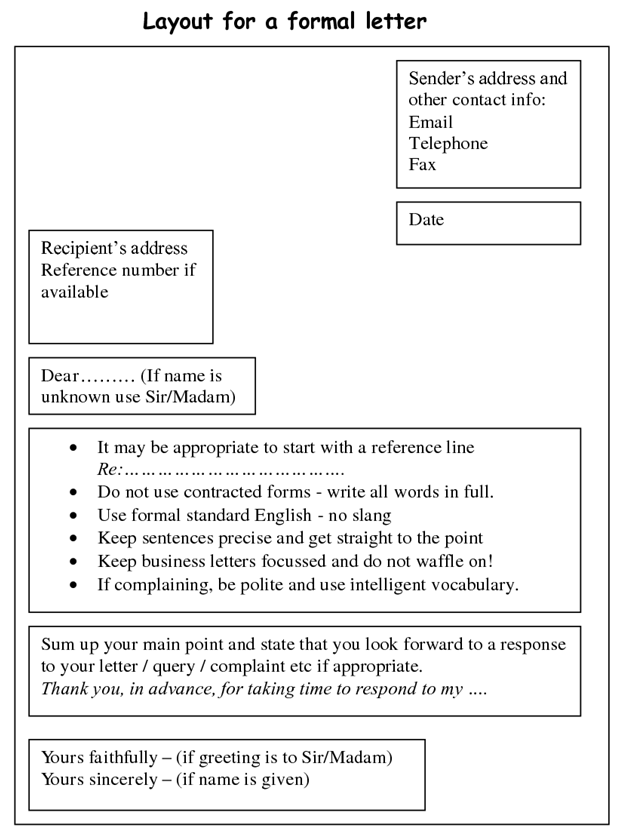
How would you put this in a formal writing?
Formal writing is important for academic and business situations. The following are tips on writing more formally: Do not write in the first person. First person pronouns include I, my, we, our, us, etc. Formal writing should be in the third person. Error: I believe dogs are better than cats. Correction: Dogs are better than cats. Write out.
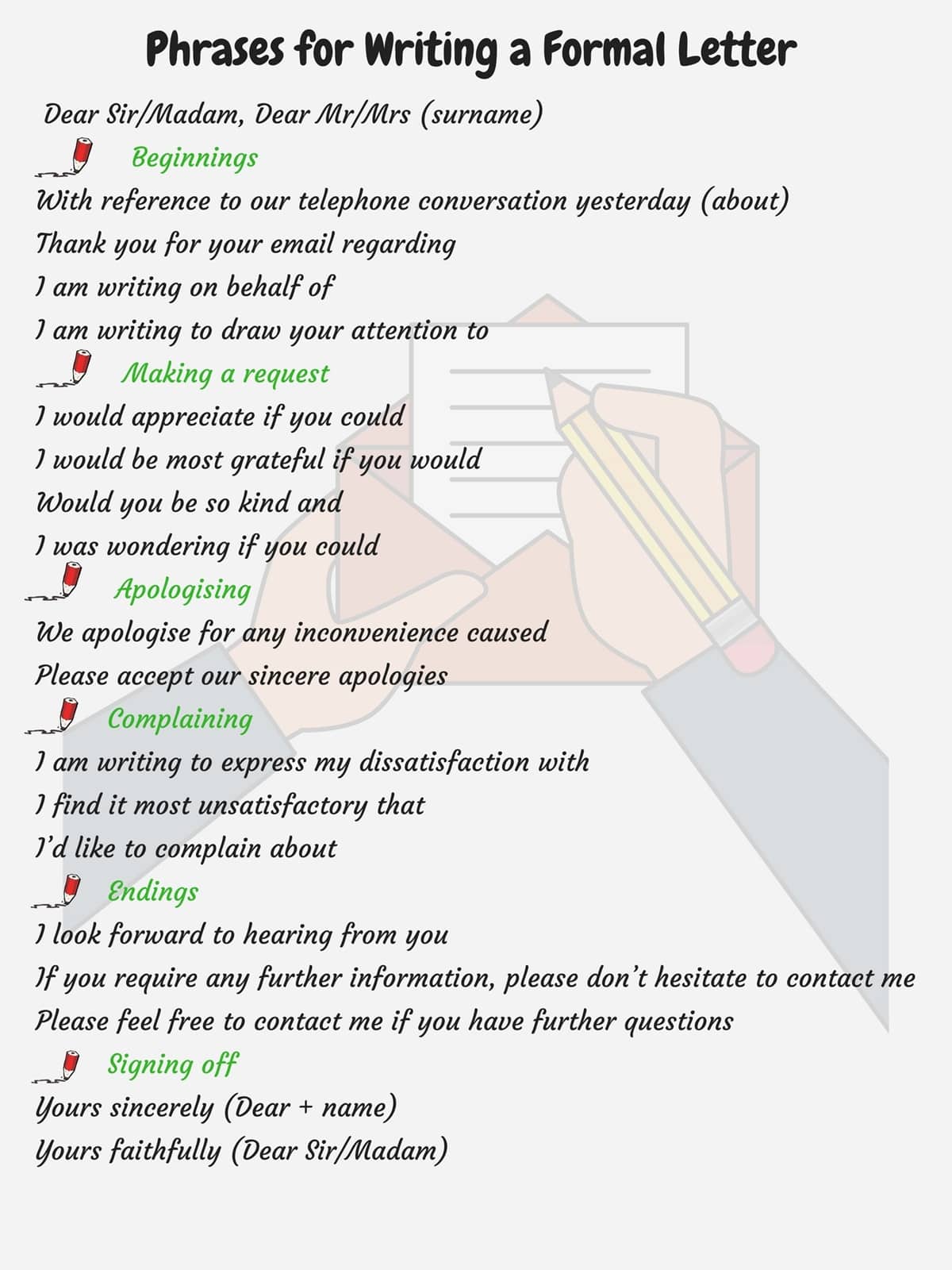
Useful Words and Phrases for Writing Formal Letters in English ESLBUZZ
Formal writing tends to use abbreviations only after first spelling out what they stand for. And where exclamations are fine in informal settings, they're frowned upon for formal writing. The same goes for the first and second person—notably, pronouns like "I" and "you."